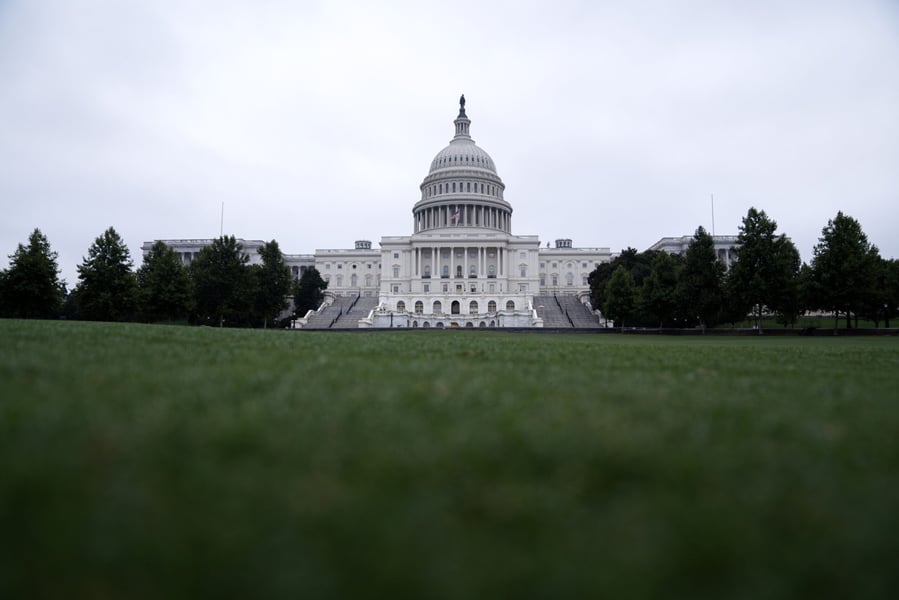

You can dig through hundreds of comment letters to distill the essence of a regulatory debate, or you can tune into a Capitol Hill hearing and have it laid out in a sharp exchange between a lawmaker and a regulator.
That happened Tuesday at a meeting of a House Financial Services subcommittee that featured Gurbir Grewal, the SEC's director of enforcement, who took hits from Republicans over the Securities and Exchange Commission’s oversight of investing using environmental, social and governance factors.
Rep. Ann Wagner, R-Mo., pressed Grewal on how the SEC can take ESG enforcement actions when there is no regulatory definition of ESG.
“You can’t enforce something that’s not defined, sir,” Wagner said to Grewal during a hearing of the House Financial Services Subcommittee on Investor Protection, Entrepreneurship and Capital Markets.
Earlier in the colloquy with Wagner, Grewal explained that the SEC recently brought charges against BNY Mellon for making misstatements about the firm’s ESG practices. He said the SEC used anti-fraud provisions of securities laws and charged the firm with violations of its fiduciary duties.
“You can enforce, Rep. Wagner, lies — when an adviser lies about what it’s doing,” Grewal said.
That answer wasn’t good enough for Wagner, who also asserted the SEC lacks the authority and expertise to impose ESG requirements on issuers, funds and investment advisers. She criticized the agency’s proposed ESG rules, which include mandatory climate-risk disclosures for public companies, ESG disclosures for funds and advisers, and a rule to prevent misleading fund names.
“I’m highly disappointed in the lack of answers and transparency today,” Wagner said.
Grewal got a warmer reception from Rep. Juan Vargas, D-Calif., who has written a bill approved by the House last year that would require public companies to do what the SEC rule proposes — disclose climate risks.
Vargas said the rule is necessary to augment the anti-fraud laws that the SEC is using now to pursue ESG cases, throwing a pitch right over the plate for Grewal to hit. Grewal said the pending SEC rule would provide consistent, comparable climate information from stock issuers.
“That consistency will help us evaluate compliance,” Grewal said.
That was what Vargas wanted to hear.
“I think you’re doing a helluva good job,” he told Grewal.
The hearing demonstrated that Republicans are huffing and puffing about the SEC’s ESG oversight efforts. The question is whether the GOP can blow the SEC’s ESG house down if the party wins control of the House — and maybe the Senate, too — in November’s midterm elections. But, of course, President Biden is sticking around even if they do.
“If they take power, there will be an onslaught of anti-ESG legislation,” said Bryan McGannon, director of policy and programs at U.S. SIF, The Forum for Sustainable and Responsible Investment. “The president still has the veto pen, and we anticipate that he will use it.”
Republicans tried and failed this week to add a rider to a House appropriations bill that would have prevented the SEC from funding its climate disclosure rule. Next year, the party could have more leverage to pursue similar riders, as well as to haul SEC officials up to Capitol Hill and grill them in hearings.
The SEC is an independent agency with a 3-2 Democratic majority and can do what it wants. Nonetheless, an antagonistic Capitol Hill next year would be a challenge.
“A Republican Congress will make it very uncomfortable for the SEC,” McGannon said.

Market risk index shows hidden perils in seeking safety, and potential benefits from non-traditional investment vehicles.

Friends and family members are "the easiest type of victim to profile and steal from,” said one attorney.

The commissioner also known as "Crypto Mom" says the agency is willing to work on different models with stakeholders, though disclosures will remain key.

Cetera's policy advocacy leader explains how gig worker protection proposal might hurt independent financial advisors, and why it's "a complete outlier" in the current legal landscape.

Meanwhile, Osaic secures a new credit union partnership, and Compound Planning crosses another billion-dollar milestone.
Stan Gregor, Chairman & CEO of Summit Financial Holdings, explores how RIAs can meet growing demand for family office-style services among mass affluent clients through tax-first planning, technology, and collaboration—positioning firms for long-term success
Chris Vizzi, Co-Founder & Partner of South Coast Investment Advisors, LLC, shares how 2025 estate tax changes—$13.99M per person—offer more than tax savings. Learn how to pass on purpose, values, and vision to unite generations and give wealth lasting meaning
